How to regulate blood lipids?
When blood lipids are within the normal range, LDL in the blood transports cholesterol to various tissues and organs in the body to provide energy for various body activities, and HDL transports the remaining lipids back to the liver, where they are broken down and metabolized and excreted from the body. Only when there is an abnormal problem with blood lipids does it need to be regulated, and the abnormalities in blood lipids include elevated total cholesterol and LDL cholesterol, decreased HDL Lipid abnormalities include elevated total cholesterol and LDL cholesterol, lowered HDL cholesterol, elevated triglycerides, and mixed hyperlipidemia, which is a combination of these conditions.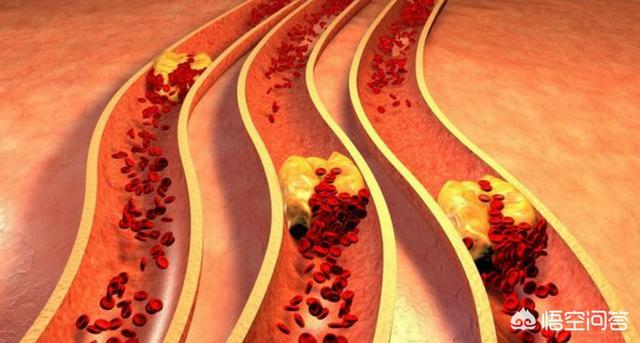
Regardless of what type of lipid abnormalities, no matter whether they are serious or not, it is the body's warning message to us, indicating that our body has problems with the lipid metabolism of the blood, and this metabolic problems in addition to family genetics, age and other reasons that we can not control, there are many external causes that we can control, to change the bad habits, to maintain good and healthy habits, to improve the lipid metabolism through life interventions, and to regulate the basis of blood lipid. Lipid metabolism, the basis for regulating blood lipids.
Dyslipidemia life regulation, should pay attention to adjust the dietary structure, try to eat less greasy, eat more vegetables, eat more grains and other food rich in dietary fiber, meat can choose poultry, fish and other white meat, limit the intake of sweets, sweet drinks and other sugar-rich diets, limit the consumption of alcohol, abstain from drinking alcohol, but also pay attention to smoking cessation, obesity should be a good control of body weight, have a habit of staying up too late as much as possible to maintain good Work and rest, sedentary friends, should be moderately strengthened and adhere to the movement, to do these aspects, usually mild dyslipidemia, especially pure triglyceride high friends, often have a very good effect of regulation.
So is it necessary to take medication to control dyslipidemia? This can not be generalized, and is not a certain indicator of blood lipids reached a certain value, is the only indicator to determine whether to take medication, about taking medication to regulate blood lipids, to give you the following several suggestions:
1. Total cholesterol and LDL cholesterol are elevated while other indicators are not. If total cholesterol exceeds 7.2 or (and) LDL cholesterol exceeds 4.9, and if life control is not effective in regulating it, one may consider taking a statin to lower LDL cholesterol, and when this value is lowered, the total cholesterol will fall as well.
2. If the above 2 values are exceeded, but not reached the above values, but combined with the body's other cardiovascular disease risk, such as hypertension, diabetes, whether there is cardiovascular disease, age, whether smoking and other factors comprehensive assessment, belongs to the cardiovascular disease of high-risk or very high-risk cases, generally also need to take statin drugs to control the blood lipids, control blood lipids up to the standard, to reduce the risk of cardiovascular disease.
3. For high triglycerides, if it is over 1.7 but not more than 2.3, it is a borderline elevation, and generally no medication is needed, and it will usually be improved by improving bad habits and strengthening exercise. For the case of more than 2.3, not more than 5.6, it is also recommended to adjust the life first, if through the life adjustment can not be lowered, or directly over 5.6, it is recommended to adjust the life at the same time, add the Beta drugs, or high-purity fish oil to control.
4. Low HDL cholesterol is also very common, and is sometimes improved by increased physical activity, and statins have a moderating effect on this condition, but it is also partly familial and difficult to regulate through various interventions.
5. Clinically there is another kind of dyslipidemia that bothers a lot of friends, that is, abnormally high lipoprotein a. This value usually has little to do with life habits and drug control, and it belongs to the family genetics or individual body constitution, and some friends may even exceed the standard by hundreds or thousands of times, and don't panic when you encounter this kind of situation. The impact is not as significant as the impact of other lipid indicators, and can not be reduced by taking medication, pay attention to good life control, regulate other lipid indicators can be.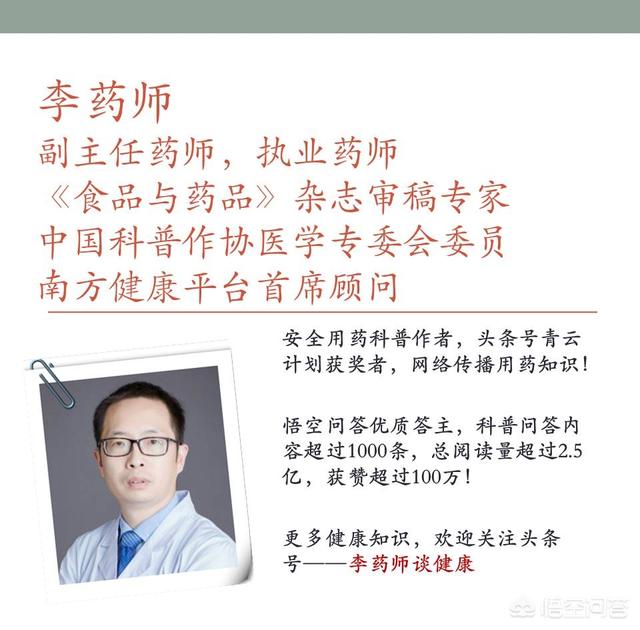
Usually when we encounter someone with high blood lipids in the clinic, we first have to figure out which one of the blood lipids is high.
High blood fat is divided into high cholesterol, high LDL, high triglyceride. Different high blood lipids, different ways to regulate, we briefly talk about the dietary regulation of high blood lipids.
Whether high triglycerides or high cholesterol, you should eat a healthy diet, low oil, low fat, low salt and low sugar is the general principle, on the basis of which the best dietary details:.
To eat as little as possible such as fatty meats, animal oils, creamy pastries, palm oil, etc.; animal offal, fish roe, squid, crab roe, etc.; shortbread, doughnuts, deep-fried fast food, etc..
Focus on a healthy diet with beans, oats, machine rice, whole grain bread, potatoes, pumpkin, etc.; eat more high fiber meals (coarse grains), which can lower total cholesterol and raise HDL. Avoid eating only fine grains, such as just white bread, cakes, white buns, etc. Vegetable oils instead of animal oils, nuts, vegetables and fruits, and a daily intake of 2.6g of plant sterols can lower total cholesterol and LDL by 10%. Eat more seasonal fresh fruits and vegetables plant foods; as for the Internet rumors of garlic, onions, fungus, hawthorn, kelp, konjac, etc., these can assist in the metabolism of blood lipids, at least eat no harm, but can not be expected to eat only these foods every day. Supplementation of fish, especially marine fish and nuts.
In addition to dietary control, you also need to quit smoking and drinking, and adhere to aerobic exercise, all of which are conducive to regulating blood lipids.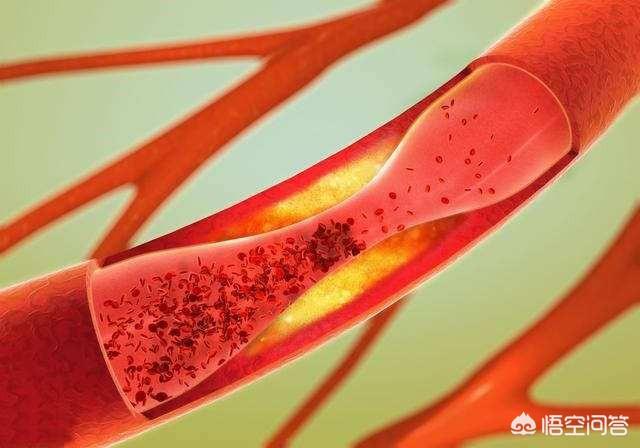
Lipid-lowering medication required if needed/needed
The current conventional advice is to take medication only if triglycerides are ≥5.65 mmol/L, but cases above this value can be encountered in the clinic and normalized simply by living a healthy lifestyle.
Elevated cholesterol alone, without any other risk factors, depends on the LDL level, and LDL ≥4.9 mmol/L can be treated with high statin therapy.
Elevated triglycerides are closely related to diet, and most of them can be recovered through dietary control; elevated cholesterol is closely related to genetic predisposition, and only a small portion of the population can be restored to normal through a healthy diet, and most of the population needs lipid-lowering drugs. The first choice for lowering triglycerides is Betaine, and the first choice for lowering cholesterol is Statin.
Regulating blood lipids can't be about living a healthy life with the necessary lipid-lowering medications.
[Dr. Cardiovascular Wang formally authorized original protection, such as theft must be held legally responsible.]
High blood lipids are usually thought of as excessive fat intake, especially animal foods, but high blood lipids are not only due to eating high-fat foods, but also high sugar/high salt, and so on. So how can lipids be adjusted?
First of all to lose weight, weight loss as the name suggests is to lose excess body fat, reduce the fat rate, so as to fundamentally reduce blood lipids, reduce blood lipids in addition to diet to pay attention to, exercise should also be strengthened, the two sides with in order to achieve a good effect.
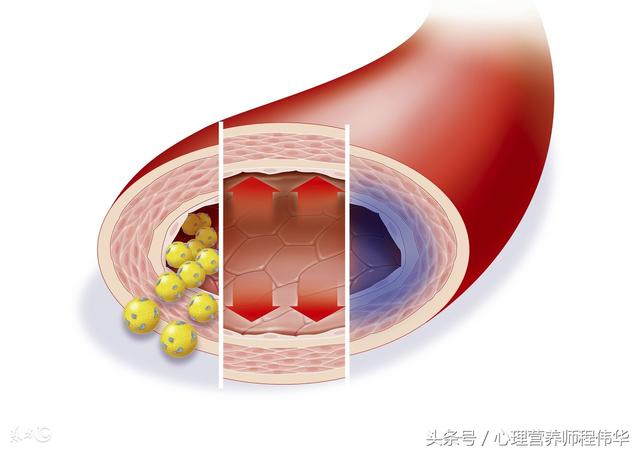
Diet:
1. Control the amount of staple foods, high blood fat people are generally accompanied by obesity, and the factors that lead to obesity are many, diet accounts for a large number of factors, staples is one of them, although it is not recommended that do not eat staples to lose weight, but in the process of losing weight, but also pay attention to the amount of staple food intake, the Chinese residents dietary guidelines recommend 250-400g per day, that is to say, even if it is a love to eat, can not be more than 400g degree, and if you need to lose weight want to control the staple food, must not be less than 150g, and the best coarse and fine collocation, coarse food is more satiating, so that you can prolong the time of hunger to come.
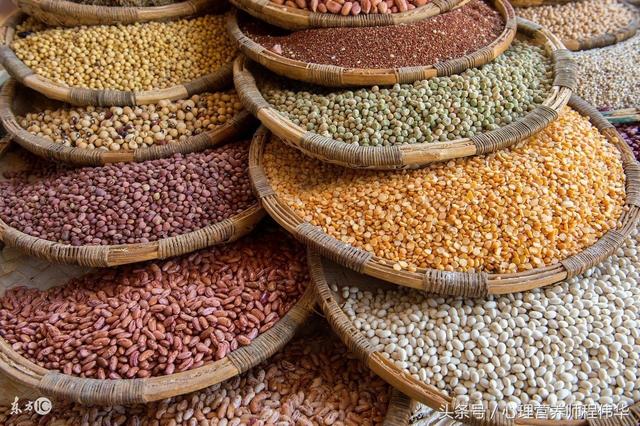
2. Animal food, animal food, although high in fat, but the fat itself is not a problem, but only because of eating too much caused la problem, the dietary guidelines for Chinese residents recommended 40g-75g per day, but also twice a week, once you can eat up to half a catty, for what meat to eat there are also requirements, it is best to eat lean meat, fatty meat in the near future the stage of lowering blood lipids is best to avoid touching, then If you want to eat less fatty meat, try to eat with vegetables, so that you can reduce absorption.
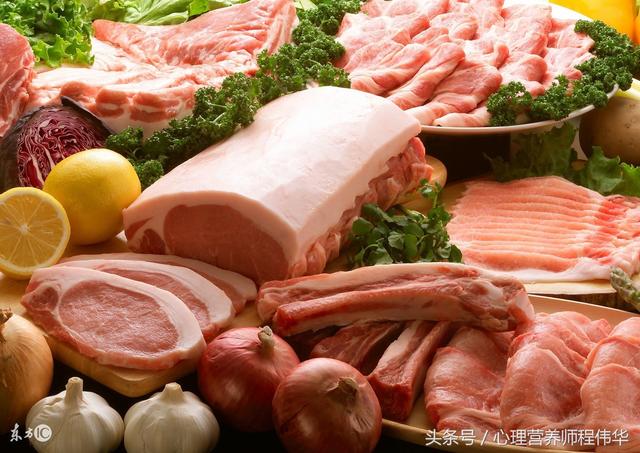
3. Sugar, this sugar is not carbohydrates in the sugar, but is refined sugar, refined sugar connotation: desserts / cakes / cookies and other snacks, which also contains some of the higher sugar content of the dishes, such as: Kung Pao Chicken / Shredded Pork with Fish / Pork in a Pot, etc., these foods, which contain a large amount of sugar, the dietary guidelines for the Chinese population suggests that each person's daily intake of refined sugar is no more than 50g, and the above foods may be A very small amount has exceeded the standard, not to mention that many people eat more than one per day, this sugar metabolism in the body, if consumed, will form fat storage, these are caused by high blood fat a factor.

The best program to get better and more fat loss from your diet is to follow diabetic meal recipes. The glycemic index is not only critical for diabetics, but also for people who are trying to lose weight. If you eat food with too high a glycemic index, it is quickly absorbed by the body, but in the meantime, if you can't consume it right away, it's easy for fat to form and accumulate in the body. An example: people who drink congee are more likely to be hungry for the same reason.
From the movement, to ensure that a good habit of exercise, half an hour after meals do not sit, try to walk slowly or stand, one hour after meals can do some, such as fast walking / deep squatting, etc., two hours after meals and then do strenuous exercise, aerobic exercise and strength exercise with, aerobic exercise no more than 30 minutes a day, strength exercise no less than 40 minutes a day, just started the movement does not require more than to be gradual and progressive, to be a period of cultivation! The first exercise can start from 3-4 times per week and increase slowly.

Hello, everyone! I'm Blessed Dad, a licensed physician. Specializing in weight management and nutritional treatment of disease for twenty years. I hope my answer is useful to you.
One of the four highs, hyperlipidemia, formally known as hyperlipidemia, has become a common metabolic disorder. With the increase of public health awareness, more and more people realize the danger of hyperlipidemia. Therefore, how to regulate blood lipids has become a concern for many people.
Many people think that blood lipids are ingested from food, but in fact, only a small portion of blood lipids come from food, and most of them are synthesized by the body itself. High blood lipids are the result of genetics, unhealthy diet and long-term influence of lifestyle habits, in fact, it is one of the manifestations of energy metabolism disorders, clinically known as metabolic syndrome.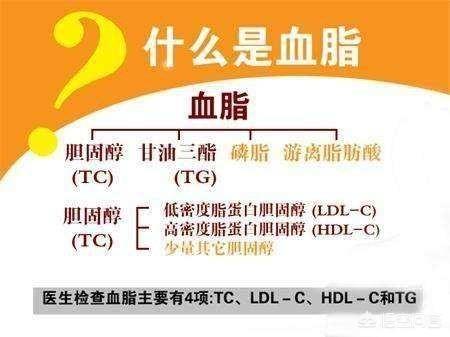
Lipids include a variety of lipids in the blood, cholesterol, triglycerides, steroids, steroids, and phospholipids. Cholesterol and triglycerides are not free, but are bound to apolipoproteins to form lipoproteins. Lipoproteins are categorized according to their density as high-density lipoproteins, low-density lipoproteins, and very low-density lipoproteins. The lipids in our physical exam lab tests contain at least 4 indicators: triglycerides, total cholesterol, LDL and HDL. These 4 indicators are actually two categories, triglycerides are one category, and total cholesterol, LDL and HDL are the other category, which belongs to cholesterol.
hypertriglyceridemia
Triglycerides are more affected by food, and the first day you eat and drink a lot, the next day you check your blood lipids triglycerides will be significantly higher. Therefore, a low-fat, low-sugar diet can indeed lower triglycerides very quickly. But improve the diet can make triglyceride lower how much, can not be generalized, especially for people with metabolic syndrome or hereditary lipid metabolism abnormalities, improve the role of the diet is also limited, for this kind of people should use Beta lipid-lowering drugs.
A low-fat, low-sugar diet with increased dietary fiber is essential for lowering triglycerides. People with obesity, weight loss is the most effective means to reduce triglycerides. Exercise helps to reduce triglycerides, provided that the diet is reasonable, and the effect of relying on exercise alone is not good.
hypercholesterolemia
The cholesterol group of lipids, which includes total cholesterol and LDL, as well as very low density lipoproteins, is less related to diet. They are basically caused by genetics coupled with unhealthy diet and lifestyle habits, and are characterized by increased synthesis of disorders of lipid metabolism in the body. Improving diet and lifestyle habits will have little effect on total cholesterol and LDL in the short term, but in the long term it can mildly lower cholesterol markers. Therefore, in addition to diet and lifestyle interventions, statin therapy is generally recommended for people with elevated total cholesterol and LDL.
I'm FooDad, a practicing physician, and if you think I'm making sense, give me a like 😜 Follow my headline here for more practical and interesting nutritional health information.
Thick blood fat is a common symptom, thick blood fat refers to the human blood inside the blood lipid viscous, high blood lipid content, so thick blood fat is also known as high blood fat, so how to adjust the thick blood fat? How to treat the thick blood fat?
First, a rational dietary structure:
The dietary principle of hyperlipidemia is "four lows and one high", i.e., low-calorie, low-fat, low-cholesterol, low-sugar and high-fiber diets.
1. Control calorie intake, each person's daily calorie intake should be controlled within 294 calories / kg body weight, control of animal fat and cholesterol intake should also be very strict, each person should not exceed 300 mg per day, try not to eat or eat less animal offal, eggs every day, not more than one, and should be advocated to eat vegetable oil containing peanut oil. It is advisable to use more milk, fish, beans, lean meat, seafood, vegetables, fruits and so on.
2. Salt intake should be less than 8 grams per person per day.
3. Eat some selenium-containing foods, 100 micrograms of selenium-enriched cornstarch, a spoonful of honey, with boiling water. Selenium can promote a variety of metabolic activities in the human body, play the role of vigorous body functions, and selenium can further reduce the damage of free radicals, so as to improve the body's immune function, and ultimately to achieve a healthy level, so selenium plays an important role in human health.
Second, a scientific lifestyle:
Prevention and treatment of hyperlipidemia should also have a regular, good habits, but also to participate in appropriate sports, or some recreational activities, in life should also pay attention to do not smoke, do not drink, and at the same time to maintain a good state of mind, to avoid mental stress.
Also, pay attention to regular medical checkups:
People over 45 years of age who are obese, those with a family history of hyperlipidemia, those who frequently participate in social functions, and those who are highly stressed are all at high risk, and it is recommended that blood lipids should be checked once a year.
Finally, medication regulation:
The fundamental purpose of lipid regulation treatment is to prevent and delay the occurrence of coronary heart disease, stroke and other diseases. When the blood lipids still cannot be reduced to the ideal level by rationally adjusting the dietary structure, changing the bad life habits and strengthening physical exercise, it is necessary to treat it with medication, and the treatment of hyperlipidemia must be taken for a long period of time. Blood lipid indicators in the moderate, or elevated people, can be in the relevant doctor's guidance, take some lipid-lowering drugs, do not take without authorization, so as not to produce bad effects.

Click on the bottom of the page [Learn More] to see more answers or ask the doctor a question for free!
Follow "Family Doctor Online" headline, more health Q&A easy to see~~~~
Hyperlipidemia patients is the main thing is the daily life conditioning, usually as long as the conditioning is good, you can control blood lipids, usually should pay attention to reasonable exercise, low-fat, low cholesterol, low-calorie diet, appropriate restriction of salt intake, at the same time, quit smoking and quitting alcohol, with drug therapy.
It is recommended that patients should eat less animal offal, cooked food, egg yolks, etc. They can eat more sea fish, which contains a large amount of high-level unsaturated fatty acids, which helps to reduce cholesterol, eat more green vegetables and fruits, and take a light diet.
Hyperlipidemia refers to high blood lipid level, which can directly cause some serious health hazards, such as atherosclerosis, coronary heart disease, pancreatitis, etc. Nowadays, there are more and more people with hyperlipidemia. Nowadays, there are more and more people with hyperlipidemia. Chinese medicine believes that this disease is caused by too much "phlegm-dampness" in the body and the weakening of the spleen's function of transportation and digestion.The key to lowering fat is strengthening the spleen and resolving dampness, and Fenglong is the key point for dispelling phlegm-dampness.

❖ Positioning of acupoints:
Fenglong acupoint LI11, at the lateral end of the elbow creaseIt is on the anterior lateral side of the calf, 8 inches above the tip of the lateral ankle, outside the mouth of the strip, two transverse fingers from the anterior edge of the tibia.
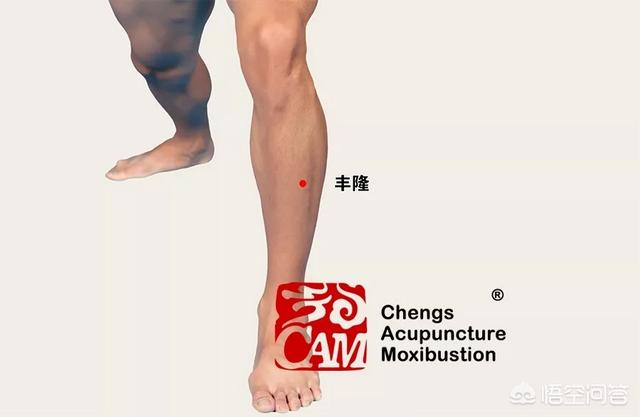
Chengshan acupointIt is located in the middle of the back of the calf, between the Commemorative Point and the Kunlun Point, where a sharp angular depression appears under the belly of the gastrocnemius muscle when the calf is straightened or the heel is lifted.
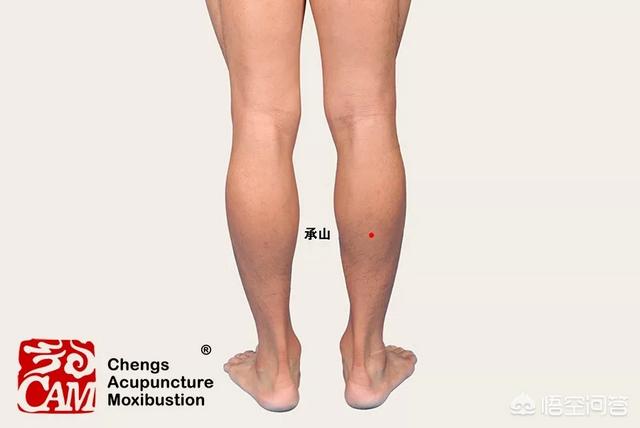
❖Method of operation:
Long-term pressure and kneading of Fenglong and Chengshan points, each point 2-3 times a day for 2-3 minutes each time, as well as a low-salt, low-fat diet and more exercise.
High blood lipid is an important cardiovascular and cerebrovascular disease, clinical treatment is mainly through lifestyle improvement and drug therapy to alleviate, as follows:
I. Improvement of lifestyle: belongs to the basic treatment. 1, reasonable diet, reduce the intake of fat and carbohydrates. 2, weight control, weight loss, fat reduction will make the blood lipid level lower. 3, moderate exercise, exercise can consume excess fat in the body, reduce the deposition of intravascular;
Second, drug treatment: according to the different components of lipid elevation to choose different drugs. 1, to cholesterol elevation of hyperlipidemia, the need to apply statin lipid-lowering drugs, cholesterol synthesis inhibitors, and PCSK9 inhibitors. 2, to triglyceride elevation of hyperlipidemia, clinically based on the main treatment of beta drug therapy, mainly to target the lowering of triglycerides.
Therefore, for hyperlipidemia it is necessary to clarify the elevated components for targeted treatment, and in the treatment of hyperlipidemia, medications should be used rationally on the basis of improving lifestyle.
When it comes to blood lipids, everyone is very sensitive, like a mildew to avoid. In fact, this is a misunderstanding of our life is very useful substances - cholesterol, the reason is that the so-called expert doctors say "you have to not eat fat", which is the so-called modern medical science made the biggest joke. This is the biggest joke of so-called modern medical science. So why do we need to "regulate" blood lipids? There must be something wrong, right? We must know that "regulation" is our "human" own behavior, but the blood lipids in the process of life has a set of self-regulating mechanism, the problem is that we "people" in order to reduce the blood lipids to the destruction of the mechanism. The problem is that we "people" have destroyed this mechanism in order to lower blood lipids. The problem is that we "human beings" have destroyed this mechanism in order to reduce blood lipids, and we have extinguished the most basic "spark" of life! We know the role of hormones in metabolism, right, without it, everything is impossible to talk about, in terms of fat metabolism, the liver and gallbladder is the first step, and it is important to note that if the liver and gallbladder function declined, or if the energy is not enough this first step will not be successful, this energy comes from the kidney yuan yang, i.e., "kidney - pituitary gland" secretion. This energy comes from the kidney yuanyang, or "kidney-pituitary gland" secretions. At the same time, these substances are the realizers of lipid metabolism and regulate the ratio of low and high lipoproteins, as well as fight against oxidative damage and protect the tissues. Do we know what is the substance that synthesizes hormones? It is cholesterol! Isn't it funny? Actually, that's what our modern medicine is all about! A half-assed understanding of life is made into a clinical protocol that kills people! In one case, the results of a medical checkup: low cholesterol, high LDL, low KDL. What does this mean? So we need to eat cholesterol, such as lard, not only to regulate blood lipids, but also to lose weight, but in essence, these two are the same nature of the problem, metabolic problems are the result of our own bad "acquired". To restore normal function or to use Chinese medicine methods, cultivate yuanyang, regulate liver qi, reduce turbidity and rise clear, good stomach qi, balance the system. In this way, phlegm-dampness will be far away from you, and there will be no "fat" problem! What we all need to know is that "fat" is the culprit that leads to the disease of affluence.
Answer:
The safest, most effective and side-effect-free treatment for people with hyperlipidemia is to keep your mouth shut and your legs open. This means you should control your diet by avoiding alcohol and tobacco, eating more light foods, and reducing your intake of cooking oils, fried foods, foods high in cholesterol and fats, as well as adhering to a certain amount of physical activity. Many people with hyperlipidemia and blood viscosity recover without medication. Not exercising is never an option.
This question and answer are from the site users, does not represent the position of the site, such as infringement, please contact the administrator to delete.